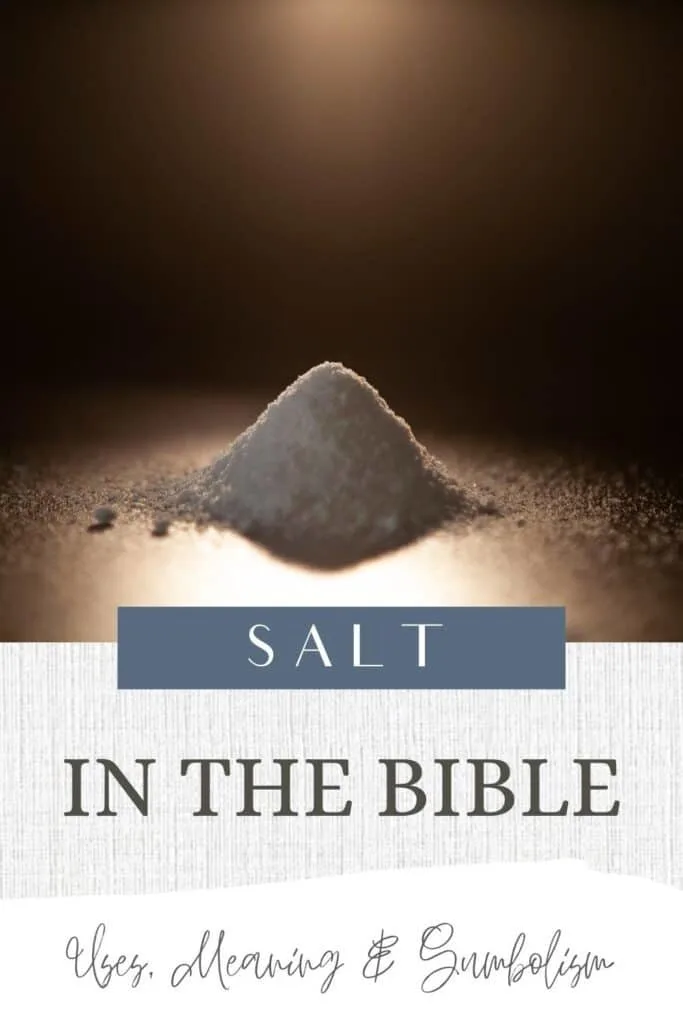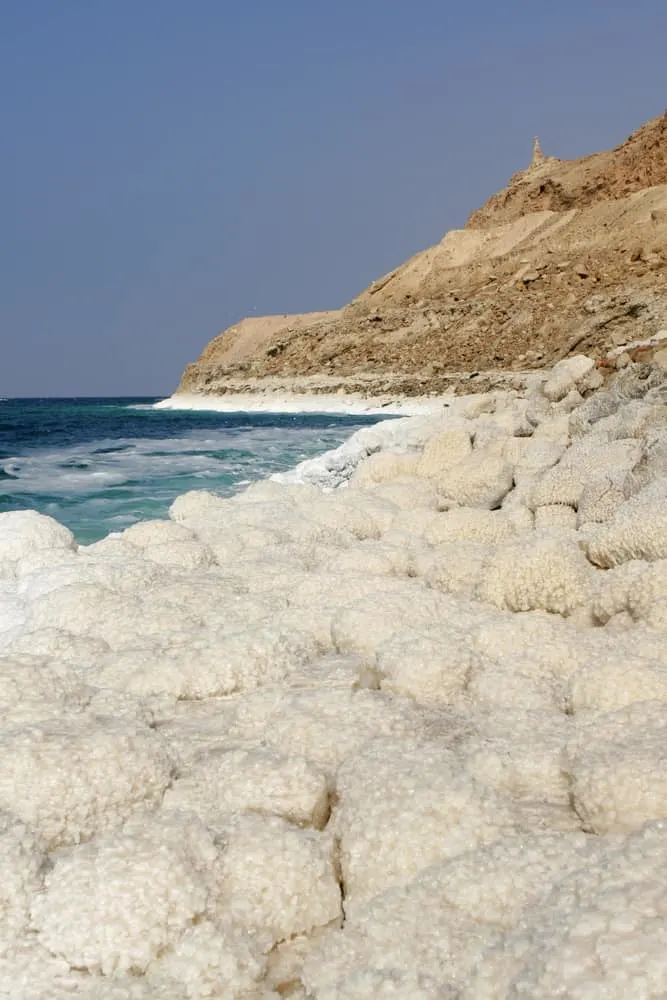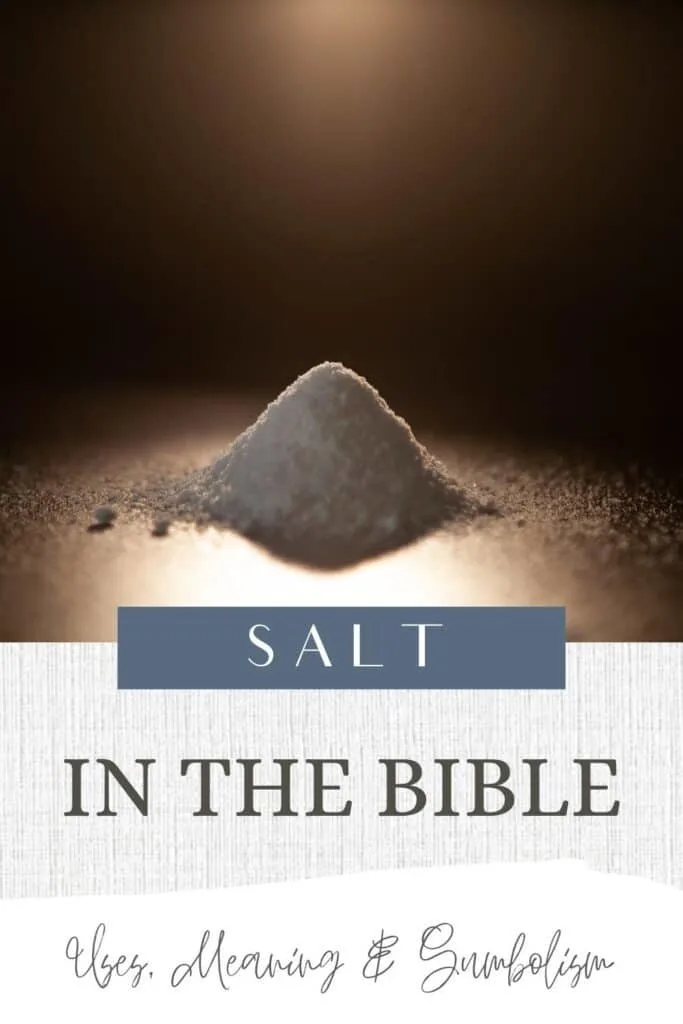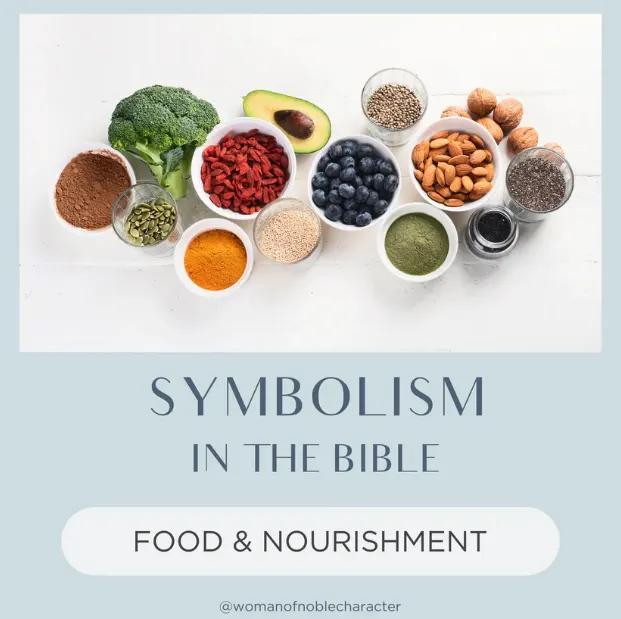This page/post may contain affiliate links. As an Amazon Associate, as well as an affiliate of other programs, this means if you purchase something using these links, I will receive a commission on qualifying purchases at no cost to you! For more detailed information, please visit our Affiliate Disclaimer page
Have you ever wanted to know what salt in the Bible actually means? The Bible references salt mentioned over 40 times! In fact, one of the most recognizable verses about salt was spoken by Jesus. He said, in Matthew 5:13:
“You are the salt of the earth, but if salt has lost its taste, how shall its saltiness be restored? It is no longer good for anything except to be thrown out and trampled under people’s feet.”
Matthew 5:13 (ESV)

Salt in History
Salt has a long and storied history. It’s more than just a way to season our food. Salt has been used in many cultures, throughout the world and throughout history as a valuable commodity.
The word salary comes from an ancient word meaning “salt-money,” referring to a Roman soldier’s allowance for the purchase of salt. Someone who works hard to earn his pay is still said to be “worth his salt.”
Salt has even been used to express promises and friendship between people. It was even considered by the Greeks to be divine. In biblical times and, even today in many Arab cultures, if two men eat salt together, they are sworn to protect one another—even if they had previously been enemies. In some cultures, people throw salt over their shoulders when they make a promise.
King Abijah’s address in 2 Chronicles 13:5 mentions a a salt covenant:
Ought you not to know that the Lord God of Israel gave the kingship over Israel forever to David and his sons by a covenant of salt?
2 Chronicles 13:5
Here, Abijah refers to the binding promise of the Lord to give Israel to David and his sons forever.
Salt in the Bible
Salt in the Bible is mentioned for its various uses and symbolism including a “salt covenant”, antiseptic, preservative, and binding agreements. Let’s take a look at some of these (and more!) and learn the uses and meaning behind salt in the Bible.
Salt Covenant
In Leviticus we learn the reason why salt is added to grain offerings
You shall season all your grain offerings with salt. You shall not let the salt of the covenant with your God be missing from your grain offering; with all your offerings you shall offer salt.
Leviticus 2:13 (ESV)
Why was salt so important to add to grain offerings?
Salt was an important part of the offering because it represented purity, preservation, and expense. Every sacrifice offered to God should be pure, should be enduring, and should have a cost.
As far as the cost, salt in the Bible was a valued commodity. It is one of the reasons God required it in a sacrifice. It was of importance to the people and seen as a great sacrifice to give up. In fact, salt was a necessity of life in the ancient times used by many cultures as a seasoning, preservation, disinfectant, for ceremonial offerings and unit of exchange.
So, when God required salt to be a part of their grain offering, it wasn’t just on a whim. It was symbolic. -It showed the relationship God wanted with his people and how God wanted his people to be the preservative of the earth.
The idea of this salt covenant is also shared in Numbers when Moses speaks to the priests about the covenant God made with them.
“All the holy contributions that the people of Israel present to the Lord I give to you, and to your sons and daughters with you, as a perpetual due. It is a covenant of salt forever before the Lord for you and for your offspring with you.”
Numbers 18:19 (ESV)
And again in 2 Chronicles 13:5 which references King David and the covenant of salt God made with him.
Ought you not to know that the Lord God of Israel gave the kingship over Israel forever to David and his sons by a covenant of salt?
2 Chronicles 13:5 (ESV)
Both of these promises or covenants were seen as lasting covenants made by God because the sacrifice included salt.
Salt is used as a preservative, which means it was important for making things last longer. So, when we say, “covenant of salt”, it simply means that the covenant is perpetual and not to be broken, just as how salt preserves. More on this below.
Moses tells the Israelites to add salt to their offerings, and in the process, the people agree to a “covenant of salt forever before the lord.”
The Hebrew word for covenant, be ̆riyth, means an agreement between two parties, based in trust, to fulfill their ends of the deal. The two parties of the covenant, God and His people, exchange salt, a tangible symbol of loyalty and friendship, to show the permanent nature of their agreement. Through salt, God reveals His indissoluble relationship with those He loves.
The Jewish people have not forgotten their salt covenants with God. To this day, every Friday at sunset, many practicing Jews still dip their bread into salt to keep their agreement with God.
Ezekiel’s 43:23 also makes a reference to the symbolism of salt as a reminder to the priests of God’s never-ending commitment to His people.
“When you have finished purifying it, you shall offer a bull from the herd without blemish and a ram from the flock without blemish. You shall present them before the Lord, and the priests shall sprinkle salt on them and offer them up as a burnt offering to the Lord.
Ezekiel 43:23
Salt was used to preserve and slow decay.
Salt is an aseptic meaning free from contamination and harmful bacteria. Salt prevents infection. While it cannot cure an ailment, it can stop the spread. So, in ancient times they used salt to keep items from spoiling. In biblical times, the did not have the luxury of electricity or refrigeration, as we do today, so salt was used to prevent food from going bad.
When Lot’s wife looked back on her life of sin and decay with sorrow, she lost the preserving qualities that made her stand out in society. She became one with everything else around her-a warning to us all about what can happen when we turn our backs against God. She is a warning to us.
The sun had risen on the earth when Lot came to Zoar. Then the Lord rained on Sodom and Gomorrah sulfur and fire from the Lord out of heaven. And he overthrew those cities, and all the valley, and all the inhabitants of the cities, and what grew on the ground. But Lot’s wife, behind him, looked back, and she became a pillar of salt.
Genesis 19:23-26 (ESV)
Jesus warns us not to be like Lot’s wife in as he speaks of the coming Kingdom.
“Remember Lot’s wife. Whoever seeks to preserve his life will lose it, but whoever loses his life will keep it.”
Luke 17:32 (ESV)
We are to look forward to our new life in Christ and not back on our former lives of sin and miss the old ways.
As discussed, salt is used to preserve the freshness of food. We season meat with salt to keep it fresh, we pickle fruits and vegetables by adding salt and prevent them from perishing. Salt sustains life. It signifies faithfulness. Likewise, Jesus Christ represents salt: He preserves life, sustains life, and is faithful to His promises to us.

Salt as a Symbol of Friendship and Loyalty
According to ancient, and biblical customs, a bond of friendship was formed through the eating of salt. It was said that once you had eaten a man’s salt, you were their friend for life. God wanted every sacrifice to be a reminder of this desired relationship with us.
Why salt? Because the essence of salt is simple – it does not change. When you heat salt in water, you know it will dissolve. We add it to our food while cooking all the time.
However, if you evaporate the water off a dish that has been seasoned with salt, you end up with salt crystals.
In both Islam and Judaism, salt seals a bargain instead of just giving your word because of how endurable the quality of salt is. That is why salt symbolizes a long-lasting friendship and relationship between people.
Salt Adds Flavor
It is common knowledge that salt is a flavor-enhancing agent to food.
What does this have to do with us being “salt of the earth? Most people assume salt adds flavor to food.
Salty foods are full of flavor because they release sodium ions which break down cell walls in vegetables, fruits, and meats. As these cells break down, we can enjoy the natural flavors of the food. (See Spices in the Bible)
In Matthew 5:13, Jesus tells us
“You are the salt of the earth, but if salt has lost its taste, how shall its saltiness be restored? It is no longer good for anything except to be thrown out and trampled under people’s feet.”
Matthew 5:13 (ESV)
We are salt and light. Our presence is to uplift, enhance or bring out the beauty in people’s lives do not harm them by being destructive but instead helping others live their best life possible so they can see all that God has created around us truly beautiful with joy!
Salt as a Valuable Mineral
As referenced above, we learn about the free will offering of the people to include salt.
These offerings also included unleavened bread, birds, goats, sheep, and cattle. Salt in the Bible was always part of these offerings to show that they represented a covenant – a promise.
In addition, also mentioned above, salt was an expensive and highly valued mineral. Generally, God uses valuable items to signify His promises.
Salt Represents Trials in Life
“Whoever causes one of these little ones who believe in me to sin, it would be better for him if a great millstone were hung around his neck and he were thrown into the sea. And if your hand causes you to sin, cut it off. It is better for you to enter life crippled than with two hands to go to hell, to the unquenchable fire. And if your foot causes you to sin, cut it off. It is better for you to enter life lame than with two feet to be thrown into hell. And if your eye causes you to sin, tear it out. It is better for you to enter the kingdom of God with one eye than with two eyes to be thrown into hell,‘where their worm does not die and the fire is not quenched.’For everyone will be salted with fire.Salt is good, but if the salt has lost its saltiness, how will you make it salty again? Have salt in yourselves, and be at peace with one another.”
Mark 9:42-50 (ESV)
To understand this verse, you need to remember that fire represents trials and difficulties. So, we as God’s people will be “salted “or put through trials in our lives.
Those trials are our sacrifice and if we are the salt and our flavor is still good, we will be preserved during those trials. And it’s those trials that we seem to grow the most in our faith, giving it all to God, thus reaching that deep relations God desires to have with us.
Salt and Our Speech
Continue steadfastly in prayer, being watchful in it with thanksgiving. At the same time, pray also for us, that God may open to us a door for the word, to declare the mystery of Christ, on account of which I am in prison— that I may make it clear, which is how I ought to speak. in wisdom toward outsiders, making the best use of the time. Let your speech always be gracious, seasoned with salt, so that you may know how you ought to answer each person.
Colossians 4:2-6 (ESV)
The passage shouldn’t be too difficult to decipher in light of what we’ve learned about salt in the Bible. Our speech with God and others should be corruption-free and full of spiritual wisdom; speaking truthfully and lovingly to all around us
Salt and Babies?
Ezekiel mentions an interesting practice using salt in the Bible. He describes rubbing newborns with salt as part of a baby’s care after delivery. This is more than traditional practice: midwives during biblical times used salt as a natural loofa for removing any vernix, as well as to prevent the growth of bacteria.
And as for your birth, on the day you were born your cord was not cut, nor were you washed with water to cleanse you, nor rubbed with salt, nor wrapped in swaddling cloths.
Ezekiel 16:4 (ESV)
Salt in Incense
Salt is also added to the incense used in the tabernacle’s daily worship. The divine recipe includes spices and minerals like stacte, onycha, galbanum, frankincense — and sodium too. The sacred perfume stimulates the Israelites’ olfactory memories, signaling to their bodies, minds, spirits, and emotions the call to worship. God knew long before modern perfumers that salt unlocks a range of aromatic notes. Even today salt is added to scents to unearth fruity, floral, and citrus layers, as well as to accentuate the smokiness of woody aromas.
The Lord said to Moses, “Take sweet spices, stacte, and onycha, and galbanum, sweet spices with pure frankincense (of each shall there be an equal part), and make an incense blended as by the perfumer, seasoned with salt, pure and holy.
Exodus 30:34-25 (ESV)
Salt and Light
Of course, the most well-known reference to salt in the Bible is Jesus’ Sermon on the Mount found in Matthew 5:13.
You are the salt of the earth, but if salt has lost its taste, how shall its saltiness be restored? It is no longer good for anything except to be thrown out and trampled under people’s feet.
Matthew 5:13 (ESV)
Are You a Foodie? Do you want to learn more about food in the Bible and its symbolism?
A guide to the symbolism of many foods in the Bible, including milk, honey, bread, and more. Looking at scripture to describe food in biblical times and what it represents in our spiritual life. (122 pages)
Jesus is saying to his disciples and followers, you are the salt. I see you and God sees you as precious. You are valued. You are also what will preserve this world. You should be a preserving influence on your culture. Without your Godly influence, this world would be spoiled. Evil, disease, bacteria, whatever you may call it would conquer but because with God and His people being the salt, we will preserve and bring goodness.
This passage also mentions the flavor of salt “But if salt has lost its taste” …
In biblical times, if people noticed that salt lost its flavor or preserving qualities, they would simply throw it out on the streets, and it would be trampled in the ground by pedestrians. It was no longer good to them.
This passage should be a caution to us as Christians. If we are the salt of the earth, but lose our flavor (our influence, actions, preserving qualities for this world,) we lose our value for the Kingdom of God. This might sound harsh, but it is God’s warning to us. He wants us to live as people on a mission for him.
We are here to enhance the lives of others by living and speaking like Jesus. If we lose our “divine flavor” so to speak, then it is as if we have lost our “saltiness.” Our words are meaningless and useless. The ESV version says, “thrown out and trampled under people’s feet.” That’s a pretty strong reminder.
How to Be the Salt of the World
What does it mean to be the salt of this world? Does everyone have that calling or are some more qualified than others because they’ve been called by Jesus himself. The answer: every person can become an agent for spreading God’s grace and love in their communities through being Christ-like – kind, generous minded with boldness when needed!
Isn’t this beautiful? We are to share kindness and goodness with those around us, so in our own ways we can help ease their troubles. But at the same time salt can also lose its influence or flavor.
Luke 14:34-35 teaches salt can become useless for the soil or for the manure pile.
“Salt is good, but if salt has lost its taste, how shall its saltiness be restored? It is of no use either for the soil or for the manure pile. It is thrown away. He who has ears to hear, let him hear.”
Luke 14:34-35 (ESV)
Salt is an essential ingredient for preserving, nurturing, and bringing out the flavor in food. In much similar way we are to be that savor of life – enhancing people’s ability experience God’s goodness through our own experiences with them.
Jesus called his disciples to be the salt of the earth. That includes us.
So, if you’re going to leave a taste in someone’s mouth after your conversation with them, will it be pleasant and flavorful or bland and forgettable-will they know where you stand with Jesus Christ?
What are some things that you can do right now “to purify” this world -as well as yourself-, such preserving the Word of God?
You may sometimes question your value in this world and feel like you have little impact on the earth or are weak. But just as a small kernel of salt bursting with flavor is powerful enough to preserve other foods, YOU have the power to flavor the earth and be salt of the earth for God’s Kingdom!
Finally, salt makes us thirsty and our thirst grows for the Word of God as we grow in our faith.
You may also enjoy these recommended resources:
Stay Salt: The World Has Changed: Our Message Must Not by Rebecca Manley Pippert
A Woman of Salt: Living a Life of Godly Influence in an Ungodly World by Doris Willis
ESV – “Scripture quotations are from The ESV® Bible (The Holy Bible, English Standard Version®), copyright © 2001 by Crossway, a publishing ministry of Good News Publishers. Used by permission. All rights reserved.”


